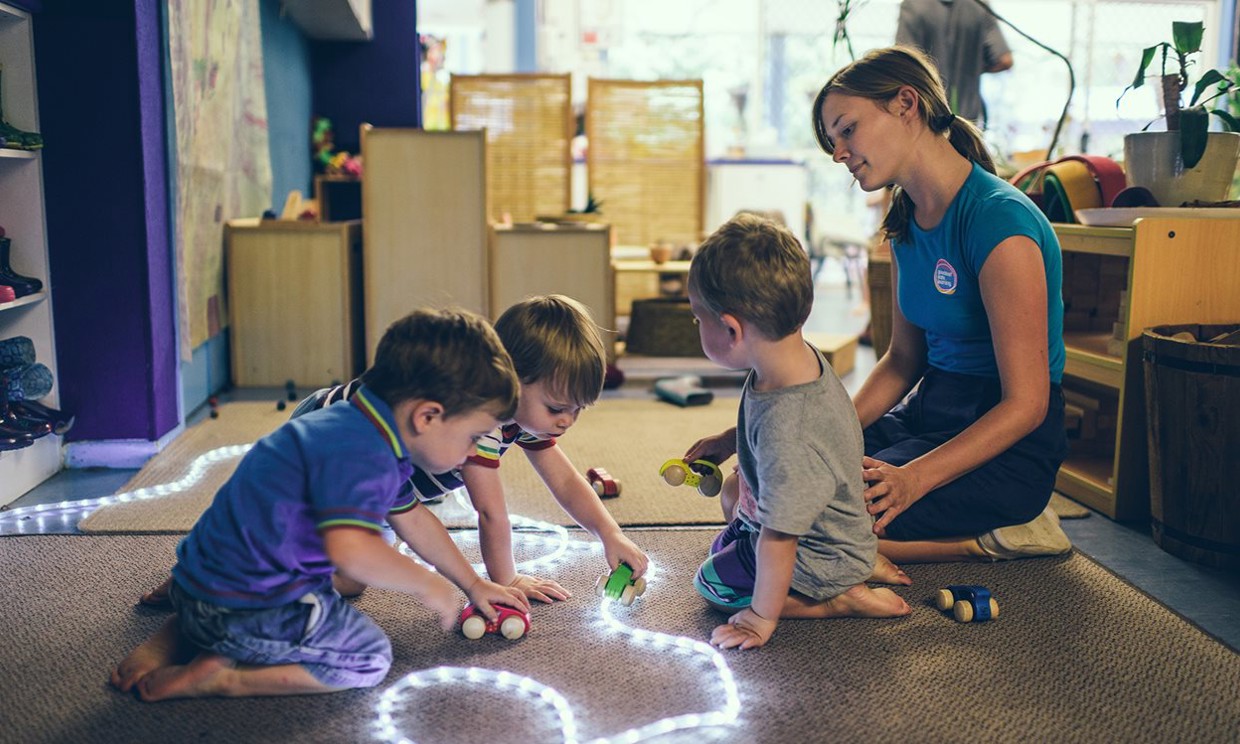Children of all ages learn naturally through play. It’s how they explore, make sense of the world, express their curiosity, and have fun.
Play-based learning is the foundation of our approach to early learning at all Goodstart centres, but because it just looks like play and fun a lot of parents might not realise the extent of rich learning taking place.
Understanding play-based learning helps parents better engage with teachers and educators and stay connected to their child’s development, as well as empowering them to extend learning during play at home.
So what is play-based learning?
Play-based learning is a simple concept but because so many of us are accustomed to seeing learning occur in formal settings, it’s easily misunderstood.
Play-based learning is all about the process that children embark on, rather than achieving a specific outcome. It’s an approach that is led by the child and supported by teachers and educators by recognising ‘teachable moments’ during play, or by carefully planning play experiences that open up opportunities for learning.
When children engage in play, they are more motivated to learn and develop positive feelings towards learning. By drawing on their natural desires, play-based learning is perfect for young children.
To help parents better understand play-based learning, we’ve recently complied a series of articles about how we use it for babies, toddlers, and 3-5 year olds, full of examples and tips to use at home. Links to each article can be found below.
Play is so important for babies
Babies learn through experience and observation. They rely on all their senses as they explore their surroundings which is why our nursery rooms are rich in colours and textures, sights and sounds.
Beyond their five senses babies also need to develop body awareness and balance, so we spend time on the floor with them - rolling, crawling, climbing and cruising – helping them to move independently and build their sensory systems.
Play gives babies a reason to experiment, discover, explore and problem solve. Just like learners of all ages, as long as there is an interesting, engaging and fun question they will strive to find the answer.
Learn more about play-based learning for babies here.
Learning and play are a natural fit for toddlers
A child’s curiosity really ramps up in their toddler years, and there’s no better way to capitalise on their growing interests than through play-based learning.
Toddlers use play based learning to foster the development of a range of important foundational skills which they’ll build on as they enter kindergarten or preschool and get ready for primary school.
Learn more about play-based learning for toddlers here.
Why 3-5 year olds learn best through play
The first five years are when children form their neural pathways and connections. Through play and active exploration, children’s brains are shaped and designed and many skills are developed such as creativity, communication, problem solving, resilience, emotional regulation and relationship building.
These are all critical skills needed for school and adult life, and quality play-based learning is the best way to develop them in 3-5 year olds.
Learn more about play-based learning for 3-5 year olds here.


